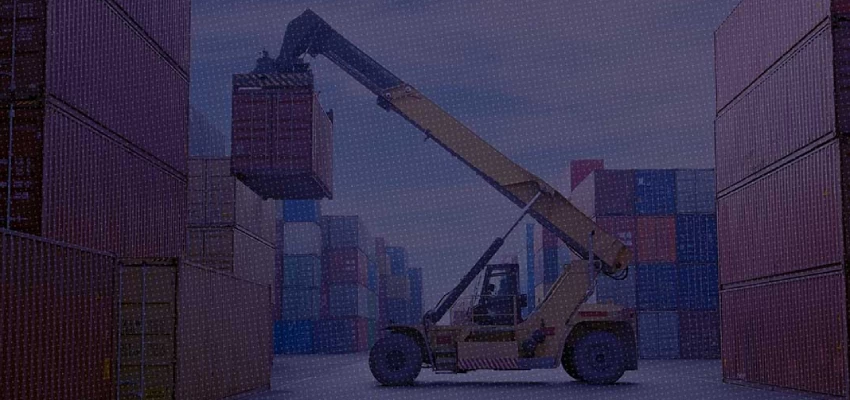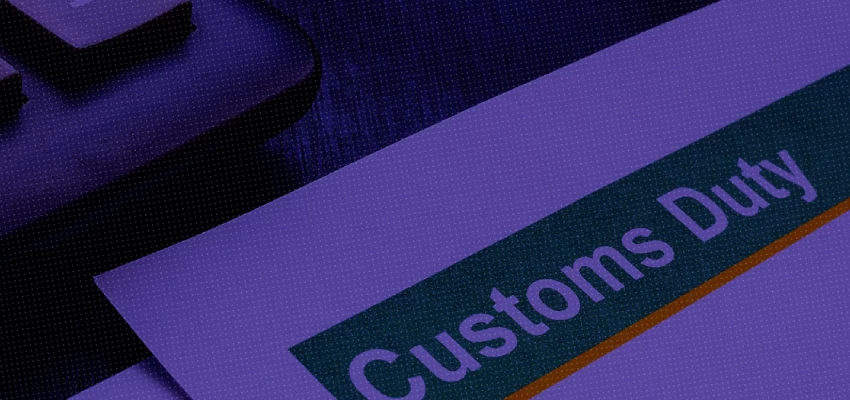The concept of ‘restriction’ imposed on export of goods as indicated in the Indian Trade Classification (‘ITC (HS)’) has been the subject matter of judicial interpretation before various forums. The recent decision of the Hon’ble Gujarat High Court in the case of Satyendra Packaging Limited v. Union of India[1] has sparked some controversy towards the settled understanding of the issue. Through the present article, we intend to analyse the said decision of Gujarat High Court vis-à-vis the position established in earlier judicial decisions.
Legal background
To provide a basis for the afore-stated analysis, it is important to discuss the relevant legal provisions. The Central Government has issued the Foreign Trade Policy (‘FTP’) read with the Handbook of Procedures (‘HBP’) that lays down the framework governing the import into and export of goods from India[2]. The import/export policies for all goods are indicated against each item as per its ITC (HS)[3]. Schedule II of ITC (HS) lays down the Export Policy regime[4]. Paragraph 2.01(a) of the FTP, inter-alia, provides that the exports shall be ‘Free’, except when regulated by the ITC(HS). The DGFT may impose ‘restriction’/ ‘prohibition’ on specified goods inter alia for the purpose of ensuring availability of essential quantities for the domestic needs, national security, etc.
Notably, ‘free’[5] items do not need any authorisation/ license or permission for being imported into the country or exported out as opposed to ‘restricted’[6] items, that can be imported into or exported outside the country, only after obtaining an authorisation from DGFT or in accordance with the procedures prescribed in a Notification / Public Notice so issued. It is important to mention that even if such condition to export/import has been fulfilled, the item continues to be a ‘restricted’ item. In this regard, reference is also made to General Notes on ITC (HS) Schedule relating to Export Policy which provides meaning to expressions ‘free’ and ‘restricted’.
Judicial pronouncements
It should be noted that time and again, different Courts and Tribunals have reiterated the abovementioned understanding of ‘restricted’ items under the FTP. In this regard, reference is made to the decision of Hon’ble Supreme Court in the case of Union of India and others v. Agricas LLP and Others.[7] In Agricas, the Apex Court observed that, to comply with the notifications issued by DGFT that brought the specified commodities from ‘free’ to ‘restricted category’, imports could only be affected upon obtaining requisite authorisation/license. In other words, satisfying pre-condition of authorisation only allows import of such ‘restricted goods’.
Similarly, Hon’ble Kerala High Court in the case of Jagdev Damodaran v. Deputy Commissioner of Customs, ACC, Cochin [8], relying on the definition of ‘prohibited goods’ under Section 2(33) of the Customs Act, 1962, held that in case of restricted goods, securing prior permission/license from the relevant authorities is a pre-condition to import such goods.
A perusal of the above judgments clearly establishes that obtaining an authorisation before the import, does not make such restricted goods ‘free’. However, the decision of Gujarat High Court holds to the contrary.
Glimpse of the factual background
Since the past year, investigations were initiated by Directorate of Revenue Intelligence against exporters who had exported sugar[9] upon availing the benefit of the Remission of Duties and Taxes on Exported Products (‘RoDTEP’) Scheme. The export policy for sugar had been revised such that it became a ‘restricted’ goods[10] since 1 June 2022. Thus, for exports of sugar permission was to be taken from the relevant departmental authorities.
The RoDTEP scheme[11] contains a bar for claim of benefits for goods falling under restricted category specified in Schedule 2 of Export Policy of ITC(HS). On this basis, the investigative authorities sought reversal of RoDTEP benefits. Pursuant to the request of the authorities, the exporters (including exporters who had obtained the requisite permissions for export) reversed the amount of duty credit under RoDTEP along with applicable interest.
Decision in Satyendra Packaging Limited v. Union of India
The Hon’ble Gujarat High Court in Satyendra Packaging in the afore-stated factual backdrop examined the claim of the petitioner to the benefit of rebate under RoDTEP scheme on export of sugar under ITC (HS) Code 1701 14 90 and 1701 99 90 for export made between 1 January 2021 to 13 December 2022. It was noted that in consonance with the condition prescribed in Notification No. 10/2015-2020 dated 24.05.2022, the petitioner had exported sugar with the permission of the DoS and claimed benefit of rebate under RoDTEP scheme on such export.
In the present case, while referring to circular issued by the Department of Food and Distribution (‘DFPD[12] permitting export of sugar, Hon’ble High Court noted that the basic objective of the RoDTEP scheme is to grant benefit of rebate to the exporter as an incentive for exporting product. It, inter-alia, directed the DGFT to grant benefit of rebate under the RoDTEP scheme to the petitioners who have exported sugar with the permission of DoS.
Remarks
As discussed above, the Gujarat High Court in Satyendra Packaging case considered the export of restricted item as ‘free’ for determining the eligibility of claiming benefit under RoDTEP scheme once the permission to export the same was granted by DoS.
This position signifies a shift in the interpretation of policy conditions mentioned in the ITC(HS). Pertinently as per earlier rulings, the fulfilment of the conditions prescribed for export of sugar by the assessee does not ensure automatic revision of the export policy from ‘restricted’ to ‘free’. It was the prevalent understanding that the restriction is a pre-condition to export goods. Satisfaction of the prescribed condition only ensured that the export of ‘restricted’ goods is legally complaint. By this standard, it would disentitle the exporter from availing RoDTEP benefits as the goods would continue to belong to the ‘restricted’ category.
Therefore, the question that arises is whether the above interpretation by the Gujarat High Court is in consonance with the definition of ‘restricted goods’ as provided in the FTP and the other judicial pronouncements on the issue. In our view, it is contrary to the provisions and the existing jurisprudence which hold the ground in relation to the scope of free and restricted items under FTP.
Exporters who pursuant to investigations had made deposits towards reversal of RoDTEP benefits may explore the option of seeking refunds by placing reliance on the Satyendra Packaging decision. In this regard, if the Revenue Department seeks to file an appeal against the judgment, it will be interesting to see if the Hon’ble Supreme Court of India endorses the view of the Gujarat High Court.
[The authors are Partner, Principal Associate and Associate, respectively, in the Customs Advisory practice at Lakshmikumaran & Sridharan Attorneys, New Delhi]
- [1] Civil Application Nos. 3084-5 of 2023 decided on 29 November 2023.
- [2] FTP introduced under Section 5 of the Foreign Trade (Development and Regulation) Act, 1992 which provides for the regulation of foreign trade by facilitating imports into, and augmenting exports from India. To give effect to the FTDR Act.
- [3] Para 2.02(a) of the FTP provides that ITC(HS) is a compilation of codes for all merchandise / goods for export/ import. Goods are classified based on their group or sub-group at 2/4/6/8 digits.
- [4] Para 2.02(c) of the FTP.
- [5] Para 9.23 of the FTP.
- [6] Para 9.47 of the FTP.
- [7] 2020 (8) TMI 705.
- [8] 2017 (352) ELT 5 (Ker.).
- [9] Tariff entries 1701 14 90 and 1701 99 90.
- [10] Notification No. 10/2015-2020 dated 24 May 2022 (‘NN 10/15-20’) was issued by DGFT to amend the export policy of sugar under Schedule 2 of Export Policy of ITC(HS). As per the notification, from 1 June 2022 till 31 October 2022, the export of the subject product was placed under ‘Restricted’ category. Accordingly, the export of subject product was allowed on production of specific permission from Directorate of Sugar (‘DoS’), Department of Food and Public Distribution. Further, by virtue of Notification No. 40/2015-2020 dated 28 October 2022 read with Notification No. 36/2023 dated 18 October 2023, the said restriction has been extended beyond 31 October 2023 till further orders.
- [11] In accordance with Para 4.55(iv) of the Foreign Trade Policy read with Sr. No. 1 of Table I of the Notification No. 76/2021-Cus. (N.T.) dated 23 September 2022
- [12] Circular dated 5 November 2022 bearing F. No. 1(1)/2022-Trade, issued by DFPD, Ministry of Consumer Affairs, Foods and Public Distribution; ERO dated 21 October 2022 issued vide F. No. 1(1)/(2022)-SP-1 by DFPD, Ministry of Consumer Affairs, Foods and Public Distribution.












